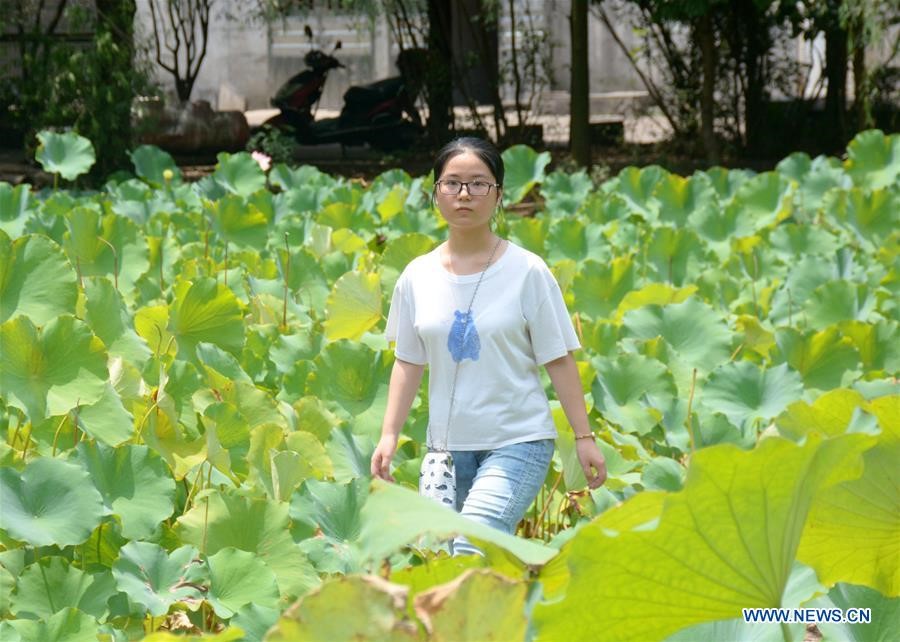Education enables left-behind children to dream big
- By Wu Jin
 0 Comment(s)
0 Comment(s) Print
Print E-mail China.org.cn, August 26, 2020
E-mail China.org.cn, August 26, 2020

Without the constant company of her parents earning money through odd jobs in bigger cities, Zhong Fangrong, an 18-year-old student from Leiyang, a county-level city in China's southern Hunan province, was still able to be admitted to the School of Archaeology and Museology of the country's most prestigious Peking University.
She scored 676 out of a possible total of 750 marks in her test papers in last month's National Higher Education Entrance Examination, the fourth highest score in arts across Hunan province.
An exuberant faculty from Leiyang Zhengyuan School, where Zhong received her high-school education, celebrated her big success with a spectacular firework show to mark her painstaking efforts over the years.
Meanwhile, the country's iconic archaeologist Fan Jinshi, best known for her longtime endeavor in preserving the historical legacy of Dunhuang Mogao Grottoes in northwestern Gansu province, sent a copy of her autobiography "My heart remains in Dunhuang" with her signature to the budding archaeologist.
Zhong responded promptly the night she received the book, writing that she felt so lucky to be able to choose the major with immense interest under Fan's influence.
"Madam Fan, since you have resolved to stay with Dunhuang and become the ‘Daughter of Dunhuang,' you have ultimately found a place to which your heart and soul can adhere," the young student wrote.
"I hope that I can follow in your footsteps to seek my own spiritual home by choosing the archaeological major at Peking University before dedicating myself to a particular undertaking," she continued.
Luo Xiangyun, headmaster of the Leiyang Zhengyuan School, said, "Without a well-off family to provide a pampered life, left-behind students are more likely to pursue their goals wholeheartedly by studying with little distraction.
According to Luo, eight out of the 10 students from his privately-funded school admitted to Peking and Tsinghua Universities had grown up as left-behind children.






Go to Forum >>0 Comment(s)